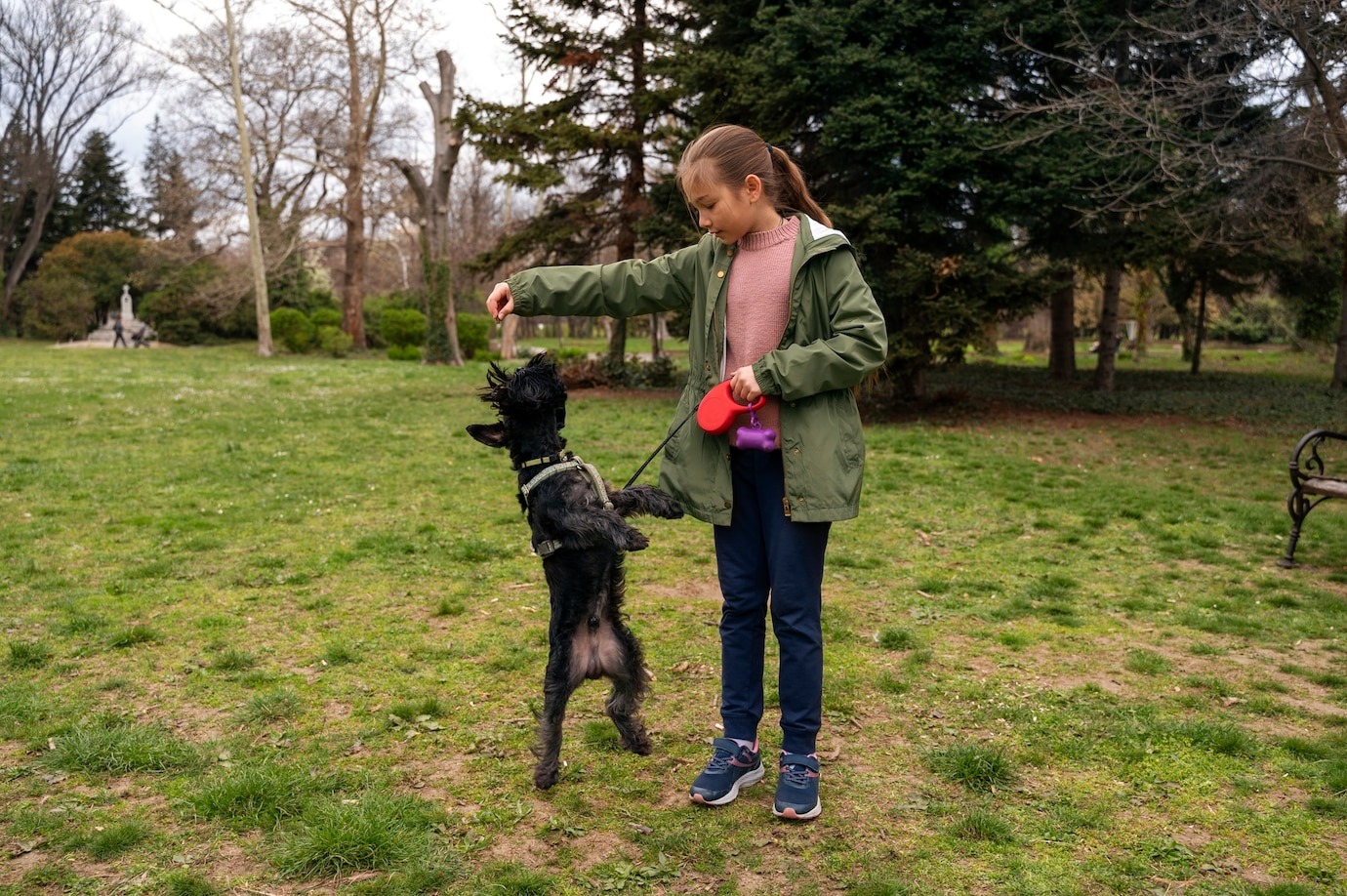Dog training is an essential aspect of a dog's life, providing them with the skills and behaviors necessary for a harmonious existence with their human companions. However, the traditional focus on training techniques often overshadows an equally important aspect of the process: the emotional lives of canine trainees. In this blog, we'll delve into the emotional journey of dogs like Leia and address the concerns of professional k9 complaints related to dog training. By understanding the emotional needs of our four-legged friends, we can create more humane and effective training methods. Let's dive in.
Emotional Complexity: Mitigating Dog Training K9 Complaints
Emotions are not the exclusive domain of humans; our canine companions, too, experience a rich spectrum of feelings. Dogs can feel happiness, fear, anxiety, frustration, and even boredom, much like us. What many dog owners and K9 professionals might not realize is that these emotions significantly influence a dog's response to training. To tackle the prevalent dog training K9 complaints, professionals must acknowledge the emotional well-being of their furry trainees.
Meet Leia, a canine trainee who served as a compelling example of this emotional journey. When exposed to unfamiliar training techniques, settings, or trainers, Leia might have initially displayed fear or anxiety. These emotions must have manifested as stress-related behaviors, including excessive barking, cowering, or withdrawal. Neglecting Leia's emotional state resulted in a breakdown in communication between her and her trainer, a situation that led to many dog training K9 complaints when Leia died of heat strokes and excessive dehydration.
Professional K9 Solutions Complaints: Addressing Concerns in Leia's Tragic Case
Professional K9 plays a pivotal role in the training and development of dogs like Leia. Regrettably, Leia's case has brought to the force a series of concerns related to this training facility, emphasizing the importance of addressing issues that have surfaced.
Key complaints regarding Professional K9 Solutions in Leia's case include:
- Neglect of Emotional Well-being: Concerns have arisen about the facility's alleged neglect of the emotional aspects of training. Leia's emotional needs may have been overlooked in the quest for quick results, potentially contributing to the tragic outcome.
- Unrealistic Training Approaches: It is reported that some facilities, including Professional K9 Solutions, may employ training methods that prioritize swift progress, exerting significant pressure on dogs like Leia. These methods might have led to shortcuts and insufficient attention to the emotional well-being of the animals, resulting in unnecessary stress and potential harm.
- Insufficient Owner Education: Leia's owners, who entrusted her to Professional K9 Solutions, may not have been adequately informed about the importance of empathy and patience during the training process. This lack of guidance may have contributed to unrealistic expectations and strained relations between the owners and the facility.
- Isolation and Limited Support: K9 training professionals often work in isolation, without the necessary support and camaraderie required to effectively address the emotional needs of the dogs. In Leia's case, this isolation could have hindered the facility's ability to provide the required care and attention to her emotional well-being.
Canine Emotional Well-being in Dog Training: A Guide for K9 Professionals
Dog training K9 complaints have long been a concern in the world of dog training professionals. Complaints often revolve around issues of obedience, performance, and, more recently, the emotional well-being of our four-legged companions. Dogs are not just pets; they are loyal companions and, for many, essential working partners. Ensuring their emotional well-being during training is an ethical obligation that should never be overlooked. In this discussion, we will explore strategies and principles that K9 professionals should embrace to address the emotional well-being of dogs during training and mitigate dog training K9 complaints.
Patience and Empathy
The cornerstone of fostering emotional well-being in dogs during training is patience and empathy. K9 professionals must recognize and address the unique emotional needs of each dog. Dogs thrive when they sense their trainers understand and care for their emotional state. Building trust is a gradual process, and patience is key in achieving this. By showing empathy, trainers can mitigate dog training K9 complaints related to a lack of understanding and care for the dogs' emotions.
Positive Reinforcement
To address dog training K9 complaints effectively, emphasizing positive reinforcement over punishment-based techniques is crucial. Dogs respond better when they feel safe, supported, and rewarded for their efforts. A positive environment fosters a stronger connection between the dog and the trainer, promoting better results in the long run. Positive reinforcement mitigates complaints related to harsh training methods and ensures a happier training experience for the dog.
Communication
Effective communication is vital in preventing dog training K9 complaints. Both the trainer and the pet owner should have a clear and open line of communication. This includes a mutual understanding of the training process, the time and effort required, and the progress being made. Transparent communication can help manage expectations and prevent misunderstandings that could lead to complaints.
Recognizing Stress Signals
To address dog training K9 complaints related to stress and discomfort, K9 professionals should be well-versed in recognizing stress signals in dogs. This includes understanding body language, behavioral cues, and vocalizations that indicate distress. When stress is detected, appropriate action should be taken to prevent emotional strain. This proactive approach can help reduce complaints from concerned pet owners.
Ongoing Education
Staying current with the latest knowledge on dog behavior and training techniques is essential for K9 professionals looking to address dog training K9 complaints effectively. Continuous learning and professional development can help trainers refine their methods to better address the emotional aspects of training. By adopting modern, humane, and scientifically supported training practices, trainers can reduce the likelihood of complaints and enhance their skills.
Final Thoughts!!
It's imperative to acknowledge the emotional aspect of canine trainees like Leia when it comes to dog training and professional K9 solution complaints. Understanding and addressing the emotional well-being of dogs is paramount for fostering a successful and humane training process, as it directly impacts the resolution of dog training K9 complaints.
K9 professionals and pet owners must appreciate the vast spectrum of emotions dogs go through and how these emotions influence the outcomes of training. By prioritizing the emotional needs of our four-legged companions, K9 professionals can not only mitigate dog training K9 complaints but also develop more efficient training techniques. Moreover, involving and educating pet owners in this process contributes to the happiness and well-being of their dogs, resulting in satisfied clients.
Remember, behind every resolution of dog training K9 complaints is a dedicated trainer who comprehends the emotional complexity of our beloved canine friends.






